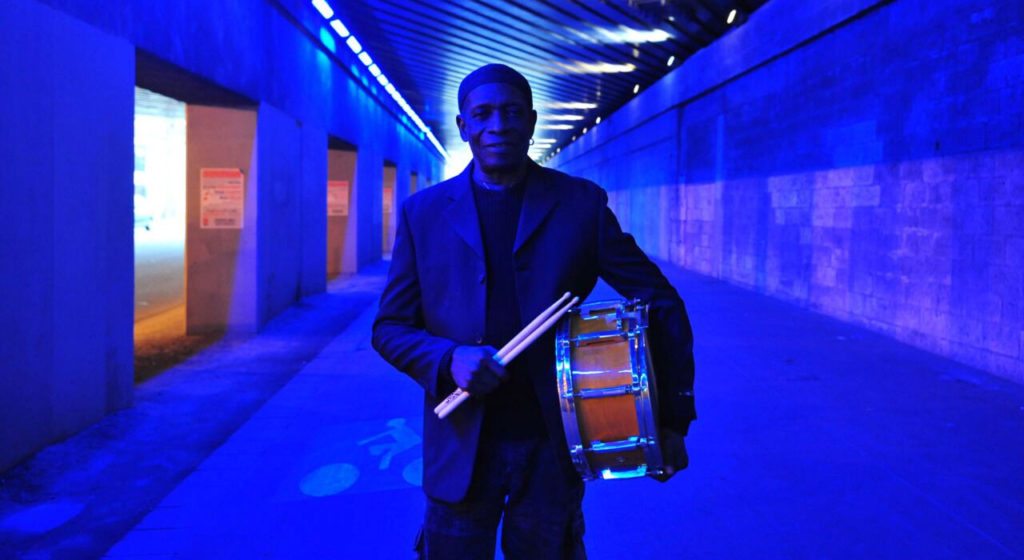“There was no drummer like Tony Allen” – Femi Kuti

It’s with a heavy sadness that we heard the news that our friend and fellow-traveler Tony Allen passed away in the night. Apparently, he was feeling fine yesterday, fit, ready for a session, a beat, a whisky (or ‘yellow water’ as he liked to call his favorite tipple), like he always was. Then he felt poorly, was taken to hospital in Paris, and two hours later he was gone. It’s a small blessing that there was no long decline for a man who always looked so trim, so capable of living life to the full in every sense. You’d be forgiven for thinking that he could go on forever, chatting, drinking, smoking, laughing, and being such a generous upbeat presence in our lives.
That was the man, then there was the legend: the youth from Lagos who taught himself how to play drums, one ear tuned to Art Blakey, Max Roach and Kenny Clarke, and the other to the music of the ancestors, the African beats of Guy Warren, and other highlife precursors. When he met Fela Kuti in 1964, the wayward prince asked, “how come you’re the only guy in Nigeria who plays like this – jazz and highlife?”
For the next fifteen years Tony and Fela were more or less inseparable, blending Yoruba rhythms and beats from other parts of Nigeria and Africa, with jazz and funk, to create afrobeat. Their partnership reached its zenith with Africa 70, and they recorded twenty albums together, spawning a million imitators. “There was no band like Africa 70,” Femi Kuti once told Rolling Stone magazine, “and no drummer like Tony Allen.”
When it all fell apart in the late 1970s, Tony Allen left for London and then Paris, disillusioned with the bloated court of sycophants that had encrusted itself around Fela. He could so easily have sunk under the weight of his own legend, but that was never his style. Instead he became ubiquitous, a dependable collaborator who was always ready to try something new. His score sheet is quite astounding: The Good The Bad and The Queen, Susheela Raman, Charlotte Gainsbourg, Air, Zap Mama, Damon Albarn, Flea, Jeff Mills, Oumou Sangare, not to mention his own solo albums, which have been classics of modern African music in their own right.
“You can tell a good drummer because we have four limbs, and they’re all playing different things,” Tony once said. So true, and yet so baffling. You could sit next his drum kit for hours and study his every inflection, but it wouldn’t gain you entry to that rarefied space which he occupied, one where total precision and total looseness somehow came together in a magical alchemy of rhythm, where standard rules of emphasis went out the window. No pedagogical system or notation could ever hope to do his style justice. It was beyond science, beyond thought. It was all to do with heritage, feeling, genius. “I know I can make my drums bring the house down if I have to,” he said, “But I know how to make it subtle. You listen to it like a free-flowing river.”
And that river flows on. If you tried to calculate how many people have danced to his beat, and will continue to dance to it, you’d soon run out of numbers. He gave grace to our limbs. And with that, he gave us friendship, and generosity, and a kind heart, all of which were part of the package, every time you met him.
We’ll miss you like hell, Tony. You were always such a rock, a steady beat, a dependable smile, at any Africa Express event. How many times, sitting in some rehearsal room, surrounded by musicians and friends, would we have to pinch ourselves and say, “that’s Tony Allen, playing the drums, just over there.” So many, and every one of them we can count as a blessing.
May the earth rest light upon you as you down your single malt, light up a big one and make the angels dance too.
Andy Morgan – 1st May, 2020